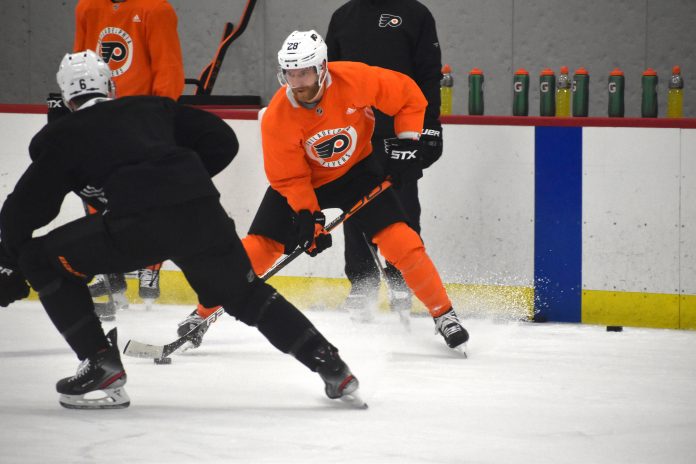By Mark Zimmaro
On Sunday, NBC replayed Game 6 of the 2013 Stanley Cup Final.
And it was still pretty exciting hockey the second time around. It reminded us of a fantastic finish, as the Chicago Blackhawks swiped a 3-2 victory with two late goals to stun the Boston Bruins and win their second of what would eventually become three titles in six years.
There was no mention of an asterisk placed next to the 2013 Stanley Cup despite the fact the regular season was shortened to 48 games following a labor dispute that year.
The Blackhawks were dominant in the regular season and they were just as good in the playoffs, which still required a grueling four rounds of fighting foes and 16 playoff wins to hoist the Stanley Cup.
So why would this year be any different?
If the National Hockey League decides to resume the season at some point, in some shortened form, it could involve forgoing the remainder of the regular season after about 68 of 82 games were played, which would once again upset hockey purists, for some reason.
If they do play on, the future could involve some form of wacky playoff system to decide this year’s champion. More teams. Fewer teams. Shorter series. Play-in games. Who knows?
“At the end of the day, they’re just trying to find the best solution possible,” Flyers forward Sean Couturier said on a conference call last week. “It’s a unique situation, to be honest. So it’s going to be different no matter what. So I think they’re just studying every option possible and trying to make the best decision possible for the league.”
Even more likely, there may be no hockey at all before the focus shifts to 2020-21.
But if there is, you can bet that the gauntlet known as the Stanley Cup Playoffs will squeeze every last bit of blood, sweat and tears from the potential 2020 champions as well as the victims that came so close. They will have paid the toll that was paid by those before them.
There will be no asterisk engraved next to their names on the historic trophy, just as there wasn’t for the Blackhawks in 2013 after Bryan Bickell and Dave Bolland scored 17 seconds apart in the final moments of Game 6. Just like there was no asterisk next to the defensively smothering New Jersey Devils, who won the first of their three titles by sweeping the powerhouse Detroit Red Wings after the first lockout-shortened season in 1995.
Sure, it could be weird if the Flyers won the Stanley Cup in some empty-stadium tournament in North Dakota and then returned to an empty Broad Street. They can worry about the logistics of a parade later. It’s been 45 years. What’s another few months?
“It would definitely be a little different but at the end of the day, we just want to play hockey,” Flyers forward Joel Farabee said on a conference call. “If we can play with no fans, we’ll do it. I think the biggest thing is waiting until government officials say it’s safe for us to go back out and do what we love.”
For reference, Farabee was born 25 years after the Flyers’ last Stanley Cup. He doesn’t carry the burden of the franchise’s playoff failures. But he can help put an end to one of the longest championship droughts in the sport.
Only the Toronto Maple Leafs (53 years) have waited longer to reclaim the prize after winning it in the past. Buffalo and Vancouver entered in 1970 and have yet to sip from the chalice. The Arizona Coyotes wouldn’t mind an asterisk, as their franchise has also never finished on top in their 17 years in the NHL in Winnipeg or in the 24 since relocating to the desert.
Instead of complaining about the legitimacy of a 2020 Stanley Cup championship, we could instead be thankful for the return of sports if it’s deemed safe enough to do so.
I can remember one time playing in a hockey game as a teenager and scoring an ugly goal off a defender’s skate. I didn’t celebrate because it wasn’t a pretty goal. The referee said to me: “They don’t ask how, kid. They ask how many.”
For the Flyers it would be three. And after a while, no one would really care how it happened. Only the fact that it did. ••





